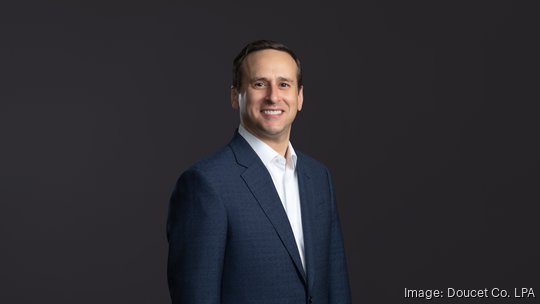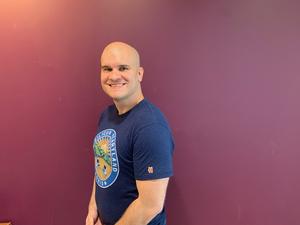
Dublin attorney Troy Doucet filed a federal lawsuit this week that's unusual in two respects: The client is his wife – and the complaint was researched and drafted in four minutes by generative AI under software guardrails built by his tech startup.
More than 1,000 users have started a free trial at www.AI.law Corp., and Doucet is concentrating on converting more of those to paid subscriptions. Within a few years, Doucet expects AI.law to be a larger business than his eight-attorney consumer legal practice.
"This is something that can be really beneficial to the profession and really beneficial to society in general ... if you do it right," Doucet said.
"I can't express to you how fundamentally different ... the legal industry is going to look in five years or 10 years. AI will entirely change everything."
Open AI's ChatGPT and similar tools debuted with a splash last year, able to generate original written or visual works based on a user's prompts. For legal uses, cautionary headlines have focused on attorneys submitting AI-generated documents that cited fake cases, or judges limiting or banning AI in their courtrooms.
But that distracts from the value of a more efficient process reducing the cost of legal services and thinning court backlogs, Doucet said. Attorneys could take on more cases – and each client would be billed for a fraction of the hours the work required before.
"A whole new subset of society has access to legal services now that they didn't otherwise have," he said.
AI.law does not insert citations, and human lawyers should always check and edit what it produces, he said.
Drafting a complaint is a new function that launched in test mode this week. Since mid-2023 clients have used the software for generating more rote documents such as responding to demands for documents or drafting the initial response to a complaint. Revenue was minimal for the first year.
"Everybody in this industry will change, because it's so darn efficient," Doucet said.
Some individual judges ban use of generative AI for their courtrooms, but there is not a blanket rule in Ohio.
AI.law's first case is against Columbus-based collection agency Revco Solutions Inc. and OhioHealth Corp., regarding the hospital bill for the birth of the Doucets' daughter in 2021.
A specialist in consumer protection cases, Doucet said he's won cases like this before. The case argues that because OhioHealth cashed a check clearly marked "pay in full," which was sent with a letter describing a dispute and how the couple were willing to pay a discounted rate, the balance can't be sent to collections.
"If I'm going to use AI as an example with drafting complaints, it's obviously best to start things off with a with a winner," Doucet said.
OhioHealth declined to comment on pending litigation but said its billing rates are comparable to other area hospitals.
AI.law users take about a half hour to input the basics of the case: parties, chronology, causes of action. A module of the software can suggest additional claims, but the attorney decides. The user also can cut and paste from exhibits, such as letters or emails submitted as evidence.
The software controls prompts to GPT and three other large language models, and follows instructions on building the documents. It reads what the user inputs, researches the law and assembles the complaint in the format of federal court.
In this case, Doucet alleges violation of the Fair Debt Collection Practices Act. The software looks up that statute, finds every element that a case must prove, and matches the evidence to those elements.
This first case took about 30 minutes to input, 4 minutes for the software to generate the document, and 10 minutes for Doucet and two other attorneys to proofread and edit. The firm estimates the work would have taken 15 to 20 hours manually.
It used the narrative from Doucet's letter to OhioHealth to draft an introduction decrying "exorbitant" hospital room charges for mother and newborn – "a clear case of price gouging a captive audience."
The first draft was "about 95% there," he said. His edits included broadening a reference to a section of statute where the software had specified down to a subclause.
A newly licensed attorney could work faster with deeper responses by using the technology, he said.
The software is attuned to litigation; for other areas of law like estate planning it would need revising with an expert in that domain.
Doucet registered the domain ai.law in 2020 – the first time he tried to use AI to help make his work more efficient. He hired a data scientist to find a way to check if the scenario a potential client presents could have legal causes of action.
"The technology just wasn't there at that point in time," he said. "Then GPT comes out and we start looking at it again."
GPT did better at spotting if a case was worth pursuing, so Doucet first used it to improve his own firm's efficiency, then hired developers to turn it into a service for other attorneys. He hired some contract engineers, and some are working for equity in the company. He has not sought outside investors.






